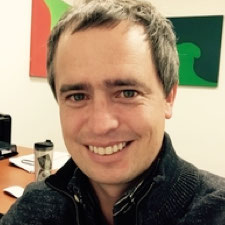This empirical and theoretical project brings together a philosopher, psychologist, and speech-language pathologist to investigate the contribution of language to the first-person experience of thinking. The investigators will conduct three interrelated studies, all focused on the question of how inner speech contributes to our conscious thought processes and cognitive phenomenology. One of the project’s key questions is whether there are forms of conscious thought that transcend anything that can be identified with the ‘offline’ use of bodily sensory-motor capacities.
Despite the ubiquity of inner speech in the mental lives of most humans, there is no consensus concerning its contribution to cognitive phenomenology. Suppose, for instance, that a person lost the ability to silently speak to herself. How would this affect the kinds of thoughts she was able to consciously entertain? Would she still be capable of the same range of conscious thoughts? Or would there be certain thoughts she could no longer have? To date, theorists have defended positions on these questions mainly by appealing to how things seem to them introspectively, or by invoking large-scale theoretical considerations derived from theories of cognitive architecture. Direct empirical support, however, has remained slight.
People with aphasia present new opportunities for approaching these questions experimentally. The project’s first experiment will involve a population of people with aphasia who are determined, through use of a silent-rhyming paradigm (Geva et al., 2011; Langland- Hassan et al., 2015), to have inner speech deficits. The experiment presents participants with a task requiring different kinds of conscious thoughts. If people with aphasia have difficulties, compared to controls, generating specific kinds of conscious thoughts, the hypothesis that those forms of conscious thought rely upon inner speech would be supported. If, alternatively, a loss of inner speech does not significantly detract from the thought contents one can consciously entertain, this would support the existence of a form of cognitive phenomenology that is conceptually complex yet irreducible to any form of sensory or quasi-sensory phenomenology.
The project’s second experiment will employ the same paradigm, yet where a non-aphasic population completes the task assessing conscious thought under two conditions. In the first articulatory suppression condition, participants complete the task while doing a concurrent language task. In the second condition, participants complete the task while doing a concurrent motor task (rhythmic tapping) that, while comparably increasing cognitive load, does not require language use. If conscious thought is significantly impaired during the concurrent language task, as opposed to the concurrent motor task, this would provide added evidence for the hypothesis that language plays an important role in conscious thought.
To supplement the findings of the above quantitative studies, the investigators will complete a third qualitative study by administering a detailed phenomenological survey to each participant group. The survey will ask a wide range of questions concerning participants’ cognitive phenomenology during the experimental tasks and in daily life. In this way, the investigators hope to arrive at mutually supporting qualitative and quantitative data, giving due weight to both first and third person perspectives on consciousness.
Image: Poured Lines, Chris JL

Peter Langland-Hassan
Principal Investigator and Team Leader

Aimee Dietz
Co-Principal Investigator

Michael J. Richardson
Co-Principal Investigator